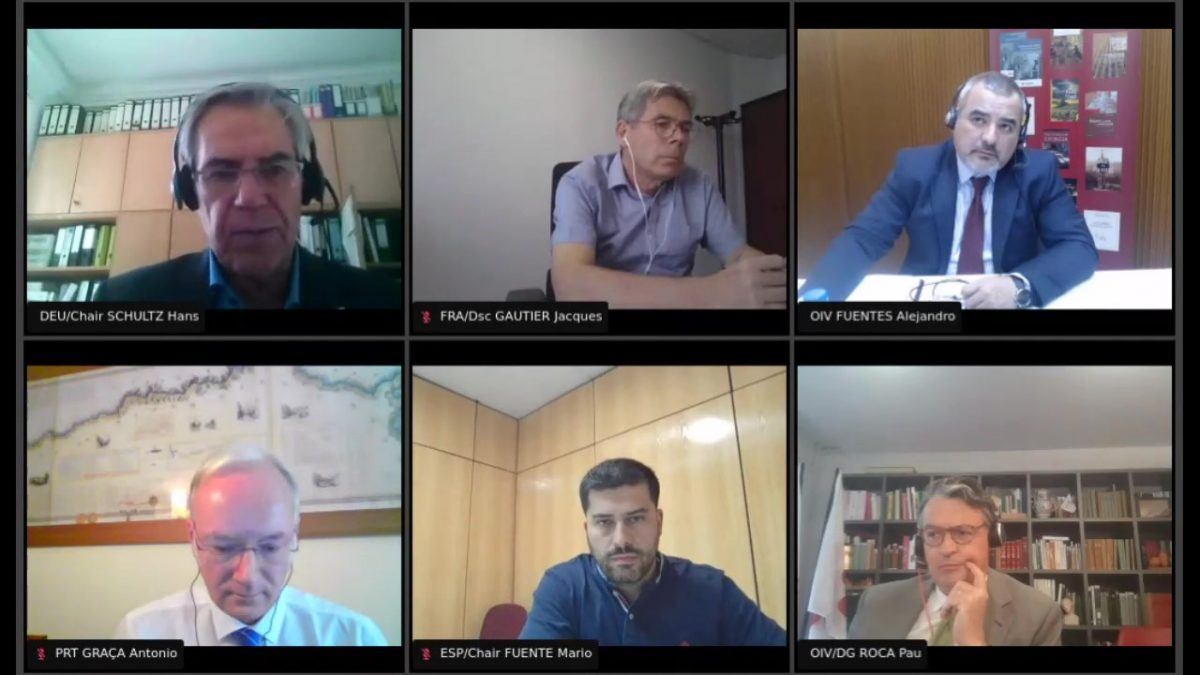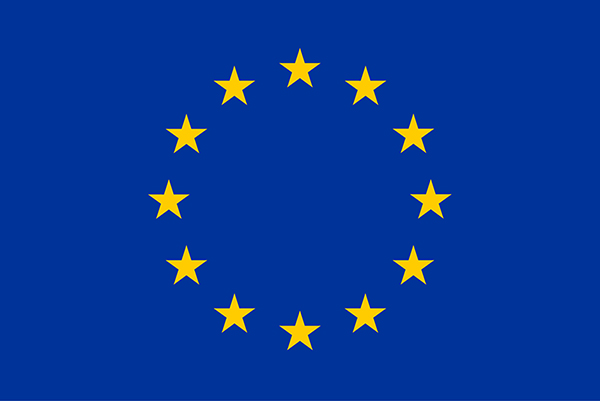OIV specialists agree that the next challenge of the interactive tool developed in the MED-GOLD project is to cover all global viticultural areas to allow users around the world to make climate-smart decisions.
António Graça, head of R&D of SOGRAPE, the Portuguese winery participating in the MED-GOLD project, presented the MED-GOLD dashboard in the last meeting of the Sustainable Development and Climate Change (ENVIRO) expert group of the International Organisation of Vine and Wine (OIV, www.oiv.int), held online on October 15th.
A large number of specialists from countries around the world attended the meeting to advance ongoing works that will result in resolutions to enhance international collaboration within the vine and wine sector, after voting at the General Assembly, by the OIV’s 48 member-states.
Graça, who is an OIV expert designated by Portugal and serves as scientific-secretary of the ENVIRO expert group, showed his fellow experts how users from the grape and wine sector can discover, using the MED-GOLD dashboard, whether climate affected their wine production and quality in the past and how it is bound to play out in the next season or the next decades under two different greenhouse gas emission scenarios.
This information may support decisions made by viticulturists and winemakers across the world when creating budgets and stocks for the coming season or when deciding which grape varieties and rootstocks to use for the plantation of a new vineyard, which training system to install, or whether there will be a need for an irrigation system.
Important features of the MED-GOLD dashboard, such as the visual referrals for the performance of the prediction (skill switch) and its reliability (advanced panel with accuracy charts for past years) were particularly highlighted as strong points of the tool, helping to build trust in users and to apply probabilistic reasoning to both operational and strategic decision-making.
Experts’ reactions
The dashboard was very well received with several experts demonstrating openly their surprise at the tool’s usability and eagerness to try it for their own situations. Prof. Hans-Reiner Schultz, President of the expert group, observed: “The prospect to extend MED-GOLD coverage seems like a large asset in further developing a global perspective on climate developments and the interactive use of this information for grape and wine users anywhere.”
A pitch was launched to the OIV General-Director, Pau Roca, to help transform this prototype pilot, currently only providing data for wine regions in the Iberian Peninsula, into a publicly accessible tool bearing the promise to allow users in all wine regions of the world to make climate-smart decisions.
“Data, and in this case climate data, is there. Using it in the most appropriate way, and for useful purposes is a challenge. MED-GOLD has partly covered this challenge by doing the necessary research, and we see it is useful and applicable for vitiviniculture, at different ranges of analysis. The next challenge is to cover all the viticultural areas of the globe, but we are certain that it works. Going from a prototype to a tool in serial production is the next step,” declared Roca.
OIV climate-relevant resolutions
The OIV, created in 1924 as a response to an international viticulture crisis, is a technical and scientific intergovernmental organisation that brings together the world of the vine and wine to collaborate within the sector, working through a network of over 1,000 experts from around the world.
All final decisions of the OIV are made via consensus of 48 member states across five continents, which are responsible for 85% of global production and 80% of the consumption of wine in the world. Member states recognise, through membership in the OIV, the importance of international collaboration and harmonisation in the vitivinicultural sector, which is increasingly important as more than two out of five bottles consumed in the world are imported.
In its Strategic Plan for 2020-2024, the OIV vows to “evaluate the impact of climate change on vitivinicultural production according to different spatial scales (local, regional, global) including terroirs, by promoting the creation of open, harmonised and systematic databases” (Axis I – I.A-2).
Recent climate-relevant resolutions approved by the OIV were:
- OIV-VITI 652-2021 – OIV recommendations concerning the selection and breeding of grapevine varieties for their adaptation to the effects of climate change.
- OIV-VITI 569-2018 – OIV protocol for the sustainable use of water in viticulture.
- OIV-VITI 517-2015 – OIV guidelines for studying climate variability of vitiviniculture in the context of climate change and its evolution.
- OIV-VITI 423-2012 – OIV guidelines for vitiviniculture zoning methodologies on a soil and climate level.
All these resolutions can be found for consultation and download on the OIV website : https://www.oiv.int/en/technical-standards-and-documents/resolutions-of-the-oiv/viticulture-resolutions


